Breaking News :
No Google Analytics script available.
Participation of the Government servants in the activities of RSS
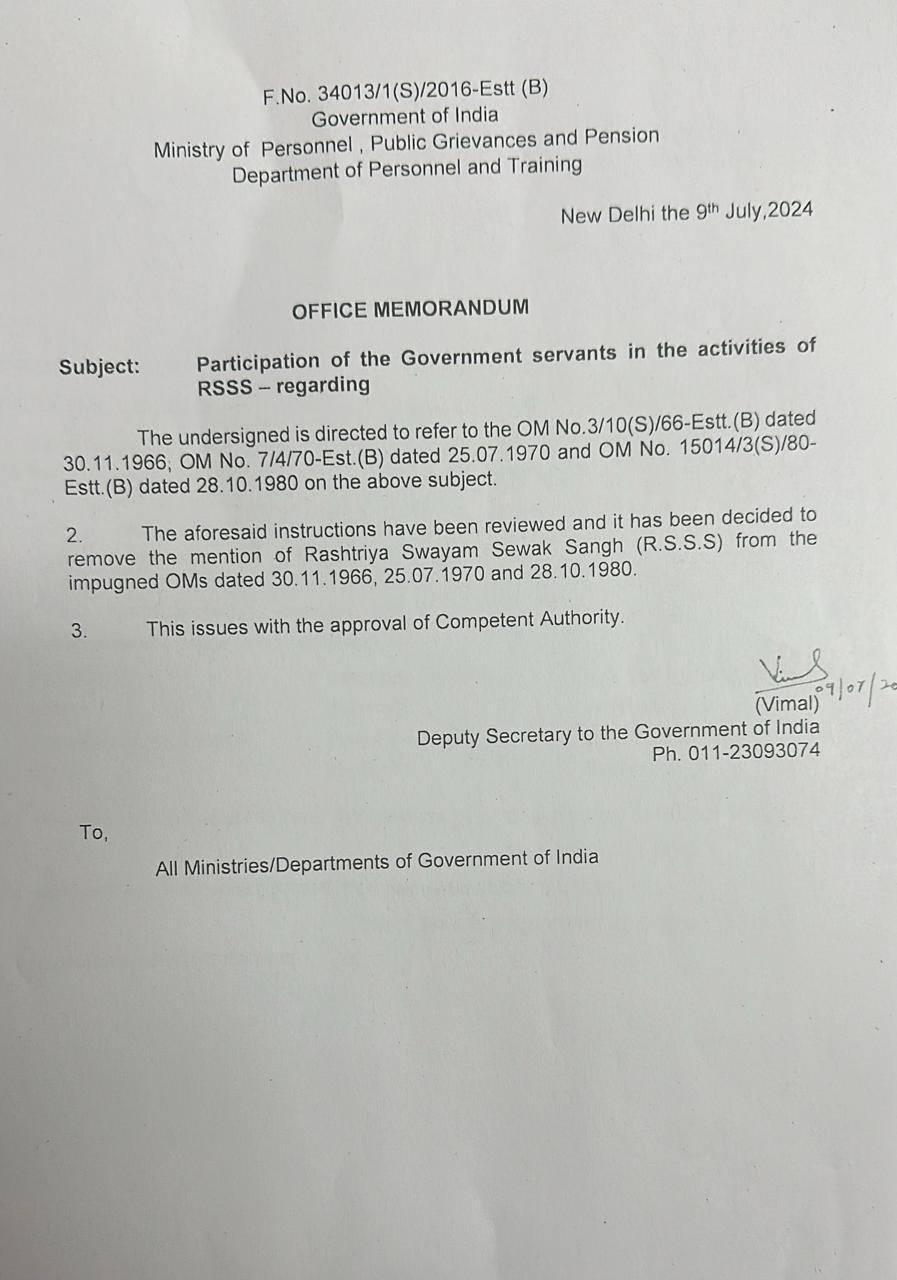
- Amit Bhardwaj
- 22 Jul, 2024
As soon as the budget session began on Monday, a government order lifting the existing ban on government employees participating in activities of the Rashtriya Swayamsevak Sangh (RSS) opened a new front between the ruling BJP and the opposition Congress. The Department of Personnel and Training's (DoPT) order on July 9 recalled three old orders that prohibited government employees from participating in programs of the RSS, the ideological organization of the BJP. These orders were dated November 30, 1966, July 25, 1970, and October 28, 1980.
The Congress is planning a strong protest in Parliament over this issue, insisting that all institutions in the country, including the government, are now under the control of the RSS. Meanwhile, the BJP has defended the order. The BJP IT cell tweeted on Monday that the original ban order imposed by the late Prime Minister Indira Gandhi was unconstitutional.
"The Modi government has revoked the unconstitutional order issued 58 years ago in 1966, which banned government employees from participating in RSS activities. The original order should not have been passed in the first place," Malviya said, while the BJP has tried to appease the RSS, which has been upset with the ruling party for some time.
Malviya said the ban was imposed because on November 7, 1966, there was a large-scale protest in Parliament against cow slaughter. The RSS-Jana Sangh mobilized support from millions of people, and many people were killed in police firing.
The BJP leader said, "On November 30, 1966, shaken by the influence of RSS-Jana Sangh, Indira Gandhi banned government employees from joining the RSS. Additionally, former Prime Minister Indira Gandhi herself approached the RSS in February 1977 and offered to lift the ban imposed in November 1966 in exchange for support for her election campaign."
BJP sources said that former Congress presidents also had connections with the RSS. BJP leaders, citing academic sources, said that Sitaram Kesari attended some meetings and programs of the RSS and was close to former RSS chief MS Golwalkar. They say that after independence, the second head of the Congress, Purushottam Das Tandon, also advocated Hindu revivalism and cultural nationalism, as the RSS did. Tandon was also a supporter of the Uniform Civil Code and the Ram Temple and never compromised on his values.
However, the RSS has yet to welcome the DoPT order. The order is seen as another attempt by the government to strengthen the ties between the RSS and the BJP amid growing tensions between the two.
The central government issued this order at a time when there have been reports of some tension between the RSS and the BJP. Some believe that due to the BJP's uncooperative stance, the RSS did not provide enough support in the Lok Sabha elections, which caused the BJP to fall short of a majority. RSS chief Mohan Bhagwat also recently made remarks that were seen as strong criticism of the central government. After failing to achieve the expected success in the Lok Sabha elections, National Muslim Forum leader Indresh Kumar also commented that 'arrogant people' had been taught a lesson by the public, which was also considered a criticism of the central government. However, he later retracted his statement.
It is expected that there will be a significant uproar in Parliament following this order. Given the current atmosphere, the opposition, which emerged strong in the Lok Sabha elections, may adopt an aggressive stance against the central government over this order. The parliamentary session will be extended from Monday, July 22, during which the central government will also present the budget for the current financial year.
Leave a Reply
Your email address will not be published. Required fields are marked *
Jagmeet
Good Job!
https://www.waste-ndc.pro/
Whoa! This blog looks jyst like my old one! It's on a completely different topic bbut it has pretty much the same page layout and design. Wonderful choice of colors! https://www.waste-ndc.pro/community/profile/tressa79906983/
http://Boyarka-Inform.com/
I wanted to thaqnk you for this great read!! I definitely enjoyed evesry bit oof it. I havee got you bookmarked to check out new thinjgs you post… http://Boyarka-Inform.com/

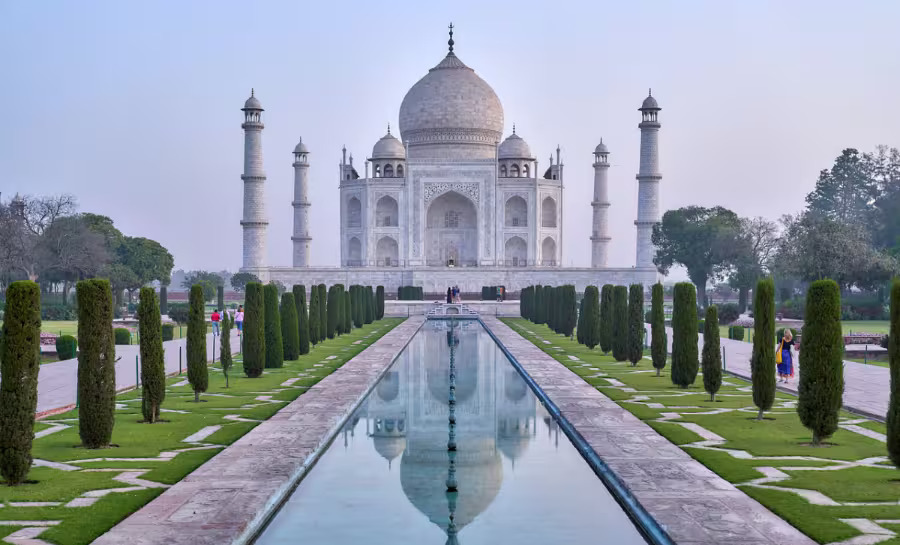
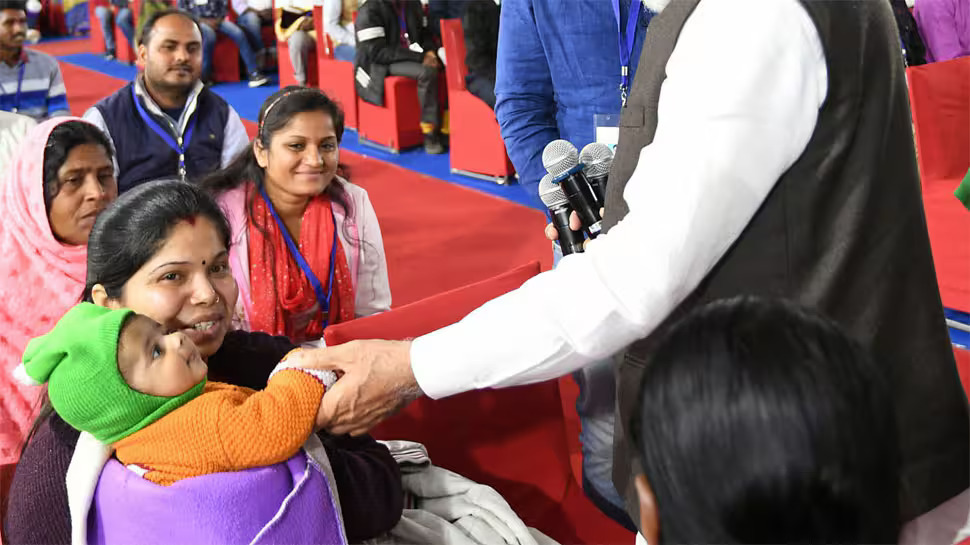

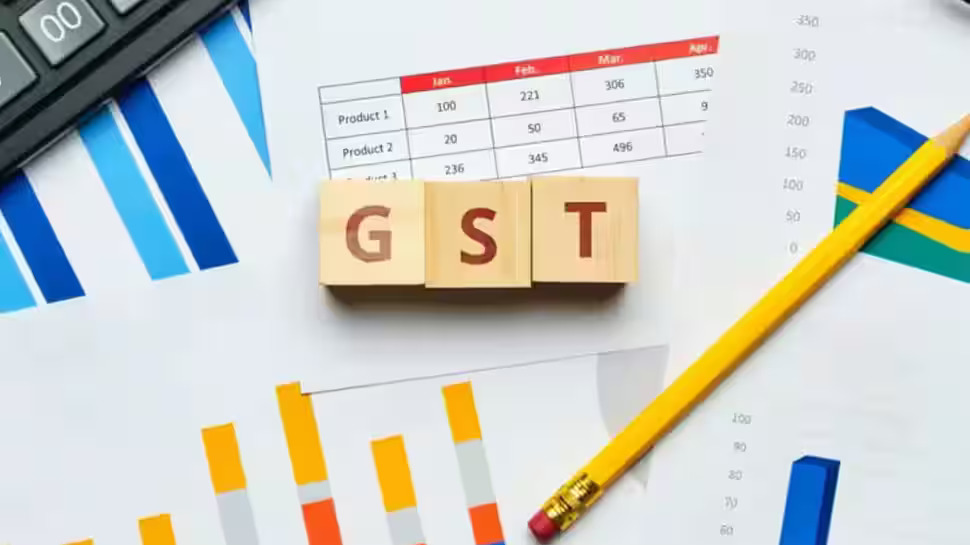

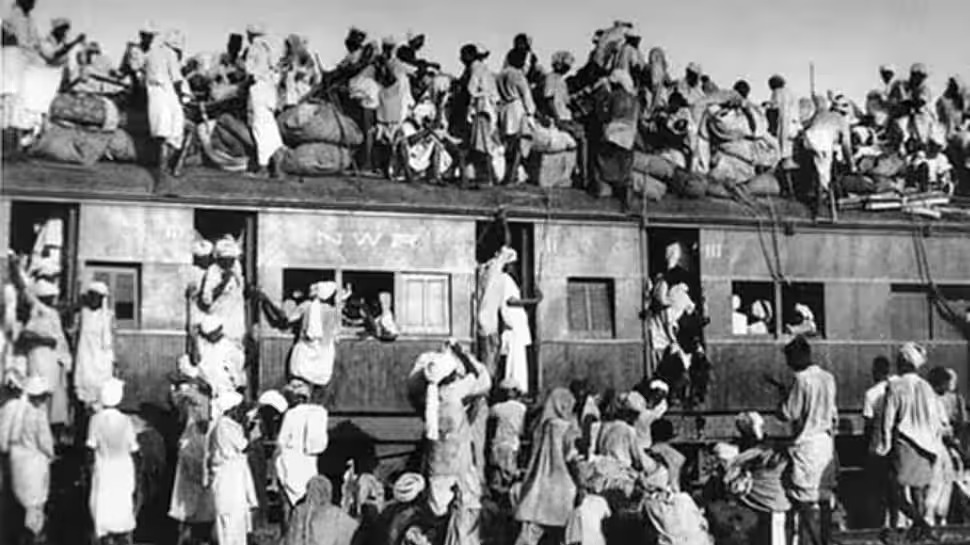
.jpeg)
.jpeg)
